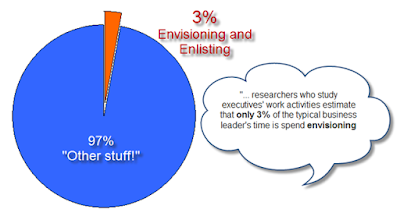While the recession has claimed 4.4 million jobs, the economy has created others, many of them for highly trained and specialized professionals. More than 2 million jobs openings now exist across a range of industries, according to government data.
Job seekers beware, though. An average of nearly five people are competing for each opening. That's up sharply from a ratio of less than 2-to-1 in December 2007, when the recession was just starting and nearly 4 million openings existed.
Human resources executives say companies that are hiring are benefiting from a top-notch talent pool as applications pour in from a larger base of job seekers. The number of unemployed Americans has soared, to 12.5 million last month, from 7 million when the recession began.
Broadly, jobs are being added in education, health care and the federal government, the Labor Department said, with the government adding 9,000 new jobs last month alone.
But beyond those areas, jobs can be found in a variety of sectors. Some places that are hiring, such as companies that make nuclear power equipment, haven't been hit that hard by the recession. Others, such as discount retailers, are actually benefiting from the downturn as shoppers turn thriftier.
Even some businesses at the center of the economic meltdown are managing to add a few employees. Banks involved in recent mergers, for example, are hiring information technology specialists to help integrate companies, said Tig Gilliam, chief executive of the Adecco Group North America, a human resources firm.
Some mortgage lending companies, notably those never involved in subprime or other exotic loans, are actually growing and hiring as larger competitors have folded.
"We've been busy," said Terry Schmidt, chief financial officer of Guild Mortgage Co. in California, whose company has doubled in size, from around 450 to close to 900 employees, in the past year and a half.
The new hires originate home loans and process them, among other duties.
"We're finding that the talent pool -- the level of talent and experience -- is much better than we've ever had," Schmidt said.
Mortgage servicing companies -- those that collect payments for the lenders that originated them -- are also hiring as lower mortgage rates fuel mortgage refinance applications.
Marina Walsh, associate vice president of industry analysis at the Mortgage Bankers Association, said servicers "are just scrambling for workers."
The nuclear power industry, meanwhile, doesn't seem to have noticed the economic downturn. It is adding thousands of jobs as it gears up to build as many as 26 new nuclear power plants in the next decade.
Corporations such as Pittsburgh-based Westinghouse Electric Company and GE Hitachi Nuclear Energy are hiring engineers and adding other workers as they expand manufacturing facilities, according to the Nuclear Energy Institute, a trade group. (GE Hitachi is a partnership between General Electric Co. and Tokyo-based Hitachi Ltd.)
Engineers of all kinds are in demand and are facing a rock-bottom jobless rate of about 3 percent, according to Gilliam of the Adecco Group North America. That compares with a nationwide unemployment rate of 8.1 percent last month.
Adecco is trying to fill about 1,200 engineering jobs, Gilliam said. They include product engineers who test the next generation of computer equipment, he said.
Other bright spots in an otherwise dismal labor market:
-- Pharmacists: An aging U.S. population is taking more medicine and pharmacists are taking more time helping patients with chronic diseases manage their dosages, said Douglas Scheckelhoff of the American Society of Health System Pharmacists.
There is a 6 percent shortage of hospital pharmacists, Scheckelhoff said, while many drug stores are also looking to hire new pharmacists and pharmacist technicians, he said.
-- Nurses: Hospitals also need more nurses to care for the aging population and to replace those nearing retirement, said Cheryl Peterson, director of nursing practice and policy at the American Nurses Association. Hospitals added 7,000 jobs of all kinds last month, even as the economy overall shed 651,000.
-- Veterinarians: "There's a tremendous demand" for veterinarians, particularly to serve livestock growers in rural areas, said Dr. Ron DeHaven, chief executive officer of the American Veterinary Medical Association. The government is also short of veterinarians needed to inspect slaughterhouses and undertake other food safety measures, he said. The Labor Department projects that the number of veterinary jobs will grow by 35 percent by 2016, DeHaven said.
Some companies are benefiting from the recession as shoppers shift to lower-priced stores. The economy has lost more than 600,000 retail jobs since the slowdown began, but discount retailer Family Dollar Stores Inc. is hiring.
The company plans to hire new workers for 200 stores it expects to open this year, said spokesman Josh Braverman, and will also add employees at some of its nine distribution centers. Family Dollar saw its sales at stores open at least a year rise by 6.4 percent in the three months ending in February.
Other companies prospering amid the economic gloom include liquidators -- firms that sell the assets of troubled businesses.
Bill Angrick, chief executive of Washington, D.C.-based Liquidity Services Inc., which operates the Web site Liquidation.com, said his company expects record profits for the first quarter. Among the items his company liquidates are vehicles and networking and communications equipment.
Julie Davis, a spokeswoman for the firm, said it has openings for at least 10 people in its sales, marketing, operations and finance departments.
"We are absolutely in hiring mode," she said. The company employs about 700 people worldwide.
AP Business Writers Jeannine Aversa and Daniel Lovering contributed to this report.
